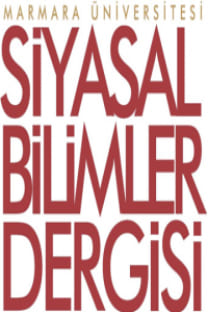Tek Parti Döneminde Faşizan Söylemler: Cumhuriyet Gazetesi Örneğinde 1942 Varlık Vergisi
Soydaşlık vurgusu üzerinden bazen ırkın üstünlüğünü savunan faşizm, gündelik hayatta çoğu zaman “biz” ve “onlar” ayrımını yapan ayrımcı bir dil kullanmaktadır. Türkiye'de 1923-1950 arasındaki Tek Parti Dönemi otoriter bir rejim olarak nitelendirilmesine rağmen, II. Dünya Savaşı sırasında çıkan Varlık Vergisi Kanunu'nun faşist bileşenler içerdiği iddia edilmektedir. Ağırlıklı olarak ticaret burjuvazisini, çiftçileri kapsamakla birlikte, bazı iddialar bu verginin özellikle gayrimüslimleri ve Yahudileri hedef aldığına yöneliktir. Bu çalışmanın amacı Türkiye'de Tek Parti Dönemi'nin günlük hayatta faşist söylem üretip üretmediğini Varlık Vergisi Kanunu örneğinde tespit etmektir. Bu amaçla bu çalışmada, o dönemde Cumhuriyet gazetesinde 1942 Varlık Vergisi Kanunu ile ilgili haber metinleri ve köşe yazıları söylem-tarihsel yaklaşımın yüklemleme ve argümantasyon stratejileriyle incelenmiştir.
Anahtar Kelimeler:
Varlık Vergisi, , faşizan söylem, söylem stratejileri, söylem-tarihsel yaklaşım
Fascist Discourses in the Single-Party Period: The Case of 1942 Wealth Tax in the Cumhuriyet Newspaper
Fascism, which sometimes defends racial superiority through its emphasis on consanguinity, often makes the distinction between “us” and “them” in the form of discriminatory language in daily life. Despite the Single Party Period in Turkey between 1923 and 1950 being characterized as an authoritarian regime, some implications during World War II as the Wealth Tax Law are claimed to contain fascist components. Though it mainly covers the commercial bourgeoisie, subsidiary farmers, some claims state that this tax targeted non-Muslims and Jewish people especially. The aim of this study is to understand whether the Single Party Period in Turkey produced fascist discourse in ordinary daily life in the case of the Wealth Tax Law. For this purpose, in this study the news texts and articles about the 1942 Wealth Tax Law in the newspaper Cumhuriyet are examined using a discourse–historical approach with the strategies of predication and argumentation.
Keywords:
Wealth Tax, Fascist Discourse, discourse strategies,
- Yayın Aralığı: Yılda 2 Sayı
- Başlangıç: 2013
- Yayıncı: Marmara Üniversitesi
Sayıdaki Diğer Makaleler
Suriye Krizinde Mezhepçiliğin Araçsallaştırılması
Aşı Milliyetçiliğinden Aşı Diplomasisine: COVID-19 Pandemisinin Siyasal Anatomisi
‘Sivil’ ve ‘Demokratik’ Bir Sivil Toplum Nasıl Mümkün Olabilir?
"Anlatma İzni" Kavramı Odağında Filistinli Madun Kimliğinin Haber Anlatı Diline Yansıması
Çin Dış Politikasında Süreklilik ve Değişim
2022 Fransa Başkanlık Seçimlerindeki Temel Dinamik: Popülizm
